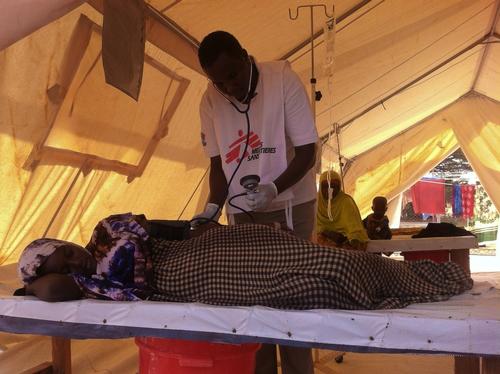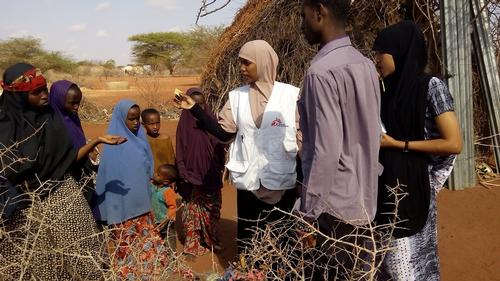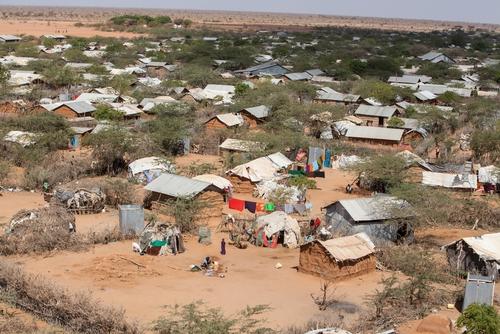The simultaneous outbreaks of cholera and chikungunya affecting Mandera town for the last three months are finally under control, confirms Médecins Sans Frontières (MSF) today. Admissions to the organisation’s cholera treatment centre at Mandera referral hospital have fallen over recent weeks, and the number of chikungunya cases has also reduced.
MSF’s staff left Mandera town on Monday 11 July, having successfully handed over their emergency medical activities to the Mandera county health authorities last week.
“The number of cholera patients has been reduced thanks to the combined efforts of the county health authorities and other organisations involved in the response,” says Liesbeth Aelbrecht, Head of Mission for MSF in Kenya. “The smooth collaboration with the local authorities and the other actors was a key element in tackling this outbreak, and we are grateful to all partners for their support. However, we have not yet reached zero cases. Only with sustained efforts to improve hygiene and living conditions, can future outbreaks be avoided.”
Since 26 May, some 1,470 patients have been treated in MSF’s 80-bed cholera treatment centre. The centre was built in order to accommodate cholera patients who were being treated in the Mandera referral hospital which quickly became overwhelmed. Due to the scale of the outbreak the capacity of the treatment centre had to be increased to 120 beds at its peak. As the number of cholera cases has meanwhile fallen, the capacity of the treatment centre could be reduced to 30 beds before the handover to the county health authorities.
Chikungunya: Another epidemic adding pressure on health services
At the same time as the cholera outbreak, the population of Mandera town has also been facing a chikungunya epidemic. Chikungunya is a mosquito-borne disease, causing high fever, joint pain, rash and headache. At the height of the epidemic, almost half of health workers were also infected, causing massive pressure on already overwhelmed services.
MSF quickly supported the health authorities to provide outpatient care in Mandera referral hospital, and also to offer health education on transmission and prevention of the disease. MSF medical teams treated around 1,150 patients. Additionally, MSF has distributed some 3,400 insecticide treated mosquito nets and donated a further 4,100 nets to be distributed in the coming weeks by the county health department.
Cholera prevention efforts must be continued
As MSF wraps up its medical activities in Mandera, the organisation reiterates the importance of remaining vigilant. In this sense, MSF provided comprehensive two-day training on management and prevention of cholera and chikungunya cases to the county health staff before handing over its activities.
“The importance of ongoing measures for prevention of cholera cannot be understated,” continues Aelbrecht. “Correct hygiene practices such as frequent hand washing and treating drinking water can help prevent the spread. Although progress has been made, conditions in Mandera town still exist for another outbreak. We call upon the authorities to continue efforts to increase access to clean water and sufficient latrines, and to improve living and hygiene conditions.”
MSF arrived in Mandera town on 20 May 2016 to assist the Ministry of Health in tackling the simultaneous cholera and chikungunya outbreaks. Medical and logistical staff were deployed from Nairobi and from nearby Dagahaley, one of the five camps that make up the Dadaab refugee complex.
Since the cholera outbreak began in Kenya in late 2014, the Ministry of Health has reported over 16,500 cases countrywide. MSF has been working in collaboration with the Ministry of Health in 17 of the 22 affected counties supporting patient care and epidemic control measures.





